44 label parts of chromosome
Solved Label the following parts of a duplicated chromosome ... - Chegg Label the following parts of a duplicated chromosome. One chromatid Centromere Kinetochore Sister chromatids Reset Zoom ; Question: Label the following parts of a duplicated chromosome. One chromatid Centromere Kinetochore Sister chromatids Reset Zoom Draw the structure of the chromosome and label its parts. - Vedantu Each chromosome contains a centromere, which divides the chromosome into two sections: The p (short) arm and therefore the q (long) arm. The centromere is found at the cell's constriction point, which can or might not be the middle of the chromosome. The arrangement of the centromere on each chromosome gives its characteristic shape.
Genetic Linkage - University of Utah A chromosome is a single piece of DNA. Genes are segments of DNA arranged along a chromosome. A single chromosome can have hundreds or even thousands of genes. Most sexually reproducing organisms, like people and pigeons, have two copies of each chromosome, called homologous chromosomes. Humans have 23 chromosome pairs, or 46 chromosomes …

Label parts of chromosome
Labeled Chromosome Structure and Functions:/ Types of Chromosomes ... Labeled structure of chromosome. A chromosome has different parts which are described below. Pellicle: It is an outer membrane of a chromosome which is unstained and a non-genic. It is a very thin layer. Matrix: It is a ground or gelly like substance that is present inside the pellicle. It is also a non-genic material. It contains chromonemata. Chromatid - Genome.gov A chromatid is one of the two identical halves of a chromosome that has been replicated in preparation for cell division. The two "sister" chromatids are joined at a constricted region of the chromosome called the centromere. During cell division, spindle fibers attach to the centromere and pull each of the sister chromatids to opposite sides of the cell. Cell Parts | Ask A Biologist - Arizona State University Sep 27, 2009 · Chromosome: a long, thread-like molecule made of the chemical called DNA (deoxyribonucleic acid) ... The fatty acid that makes up this membrane has two different parts to it- a small water loving head- hydrophilic head. Hydro stands for water and philic means liking or loving. The other part of this fatty acid is a long water-repelling or water ...
Label parts of chromosome. Parts of a Chromosome Roles & Diagram - Study.com The parts of a chromosome are chromatids, centromere, telomere, and satellite. Only two sister chromatids are present in each chromosome during cell division. Top Labeled Chromosome Images, Diagrams and Structure (Download) The central portion which holds all four chromatids is known as the centromere. Again the DNA sequences present at centromere are non-coding. The q arm usually consist of more genes than the p arm and hence also consider as more gene-rich arm. A labeled structure of chromosome showing the p arm, q arm, sister chromatids and centromere. SOLVED: Parts of the chromosome are labelled with letters A to D. Match ... SOLVED: Parts of the chromosome are labelled with letters A to D. Match the appropriate letter with the appropriate term: Chromosomes in G, Cell3TrpttrphisHist. VIDEO ANSWER:here we have a chromosome and we want to label 12, 3 and four. Okay so what is one pointing to this is pointing to an arm of the crimson. Chromosome Banding and Nomenclature - National Center for Biotechnology ... Each human chromosome has a short arm ("p" for "petit") and long arm ("q" for "queue"), separated by a centromere. The ends of the chromosome are called telomeres. Each chromosome arm is divided into regions, or cytogenetic bands, that can be seen using a microscope and special stains. The cytogenetic bands are labeled p1, p2, p3, q1, q2, q3, etc., counting from the centromere out toward the telomeres.
Chromosomes Fact Sheet - Genome.gov The constricted region of linear chromosomes is known as the centromere. Although this constriction is called the centromere, it usually is not located exactly in the center of the chromosome and, in some cases, is located almost at the chromosome's end. The regions on either side of the centromere are referred to as the chromosome's arms. chromosome | Structure & Function | Britannica chromosome, the microscopic threadlike part of the cell that carries hereditary information in the form of genes. A defining feature of any chromosome is its compactness. For instance, the 46 chromosomes found in human cells have a combined length of 200 nm (1 nm = 10− 9 metre); if the chromosomes were to be unraveled, the genetic material they contain would measure roughly 2 metres (about 6.5 feet) in length. Join LiveJournal Password requirements: 6 to 30 characters long; ASCII characters only (characters found on a standard US keyboard); must contain at least 4 different symbols; Genome Browser FAQ - BLAT chrom - The name of the chromosome (e.g. chr3, chrY, chr2_random) or scaffold ... This label is displayed to the left of the BED line in the Genome Browser window when the track is open to full display mode or directly to the left of the item in pack mode. ... information about empty parts of the alignment block.
Chromosome Map - Genes and Disease - NCBI Bookshelf Our genetic information is stored in 23 pairs of chromosomes that vary widely in size and shape. Chromosome 1 is the largest and is over three times bigger than chromosome 22. The 23rd pair of chromosomes are two special chromosomes, X and Y, that determine our sex. Females have a pair of X chromosomes (46, XX), whereas males have one X and one Y chromosomes (46, XY). Chromosome Structure (Labeling) - The Biology Corner This simple worksheet shows a diagram of a chromosome and where it is located in the nucleus of the cell. Students use a word bank to label the chromatid, centromere, chromosomes, cell membrane, DNA, and nucleus. This worksheet was created for introductory biology for students to practice labeling the parts of a chromosome. Grade Level: 6-12. DNA Structure - YouTube Learn about the structure of DNA and how to recognize all the parts in this video! Gleevec: Side effects, generic, dosage, and more - Medical News Today Jun 09, 2019 · Gleevec (imatinib) is a brand-name prescription medication. It’s used to treat certain types of blood cancers, including Philadelphia chromosome-positive (Ph+) chronic myeloid leukemia (CML). It ...
Chromosome: its Parts, Functions and Types (1934 Words) | Biology Different Parts of Chromosome: (1) Pellicle and matrix (2) Chromonemata ADVERTISEMENTS: (3) Chromomeres (4) Centromere (5) Secondary constrictions (6) Satellite bodies
Chromosome - Genome.gov In humans, the twenty-third pair is the sex chromosomes, while the first 22 pairs are called autosomes. Typically, biologically female individuals have two X chromosomes (XX) while those who are biologically male have one X and one Y chromosome (XY). However, there are exceptions to these rules. Chromosomes are also different sizes.
6 Main Parts of a Chromosome - Biology Discussion The following points highlight the six main parts of a chromosome. The parts are: 1. Pellicle and Matrix 2. Chromatids, Chromonema and Chromomeres 3. Centromeres 4. Secondary Constriction 5. Satellite 6. Telomere. Part # 1. Pellicle and Matrix: A membrane which surrounds each chromosome is said as pellicle.
What are Chromosomes? - Healio In humans, 46 chromosomes are arranged in 23 pairs, including 22 pairs of chromosomes called autosomes. Autosomes are labeled 1-22 for reference. Each chromosome pair consists of one chromosome ...
DailyMed - OZEMPIC- semaglutide injection, solution Mar 28, 2022 · Semaglutide was not mutagenic or clastogenic in a standard battery of genotoxicity tests (bacterial mutagenicity (Ames), human lymphocyte chromosome aberration, rat bone marrow micronucleus). In a combined fertility and embryo-fetal development study in rats, subcutaneous doses of 0.01, 0.03 and 0.09 mg/kg/day (0.06-, 0.2-, and 0.6-fold the ...
The City of Animal Cells: Crash Course Biology #4 - YouTube Hank tells us about the city of Eukaryopolis - the animal cell that is responsible for all the cool things that happen in our bodies.Table of Contents time c...
Chromosome Structure: Describe the structure of a chromosome The chromosomes are mainly composed of nucleic acids and proteins. The DNA and hist-protein combine together and form deoxyribonucleoprotein, which is 90% of the chromosome, DNA being 35%and histone protein about 55%. The remaining 10% part of a chromosome is termed as a residual chromosome.
Biological Theories of Gender | Simply Psychology A chromosome is a long thin structure containing thousands of genes, which are biochemical units of heredity and govern the development of every human being. Each pair of chromosomes controls different aspects of development, and biological sex is determined by the 23rd chromosome pair.
Use the drop-down menus to identify the parts of DNA. Label A: Use the drop-down menus to identify the parts of DNA. Label A: Label B: chromosome B genes А nitrogen bases sugar-phosphate backbone HELP BESTIES ♂️
Chromosome Structure: Definition, Function and Examples - Toppr-guides A chromosome has generally 8 parts; Centromere or primary constriction or kinetochore, chromatids, chromatin, secondary constriction, telomere, chromomere, chromonema, and matrix. Centromere or Kinetochore: It is the primary constriction at the center to which the chromatids or spindle fibers are attached.
Label the Chromosome Diagram | Quizlet Start studying Label the Chromosome. Learn vocabulary, terms, and more with flashcards, games, and other study tools. ... Chromosome. A _____ Carries Genetic Information. Sets with similar terms. Biology: Chapter 12. 15 terms. samanthaxjoy. MI - Unit 2 - Key Terms. 28 terms. mcneelpltw.
Home • RootsTech 2022 • FamilySearch In this series we will discuss the purpose and power of abstracting, and begin explaining the parts of an abstract – what is essential and what is flexible depending on the researcher's needs. We also explore the potential for research, what to preserve, and when to separate important information from the extraneous. ...
Cell Parts | Ask A Biologist - Arizona State University Sep 27, 2009 · Chromosome: a long, thread-like molecule made of the chemical called DNA (deoxyribonucleic acid) ... The fatty acid that makes up this membrane has two different parts to it- a small water loving head- hydrophilic head. Hydro stands for water and philic means liking or loving. The other part of this fatty acid is a long water-repelling or water ...
Chromatid - Genome.gov A chromatid is one of the two identical halves of a chromosome that has been replicated in preparation for cell division. The two "sister" chromatids are joined at a constricted region of the chromosome called the centromere. During cell division, spindle fibers attach to the centromere and pull each of the sister chromatids to opposite sides of the cell.
Labeled Chromosome Structure and Functions:/ Types of Chromosomes ... Labeled structure of chromosome. A chromosome has different parts which are described below. Pellicle: It is an outer membrane of a chromosome which is unstained and a non-genic. It is a very thin layer. Matrix: It is a ground or gelly like substance that is present inside the pellicle. It is also a non-genic material. It contains chromonemata.
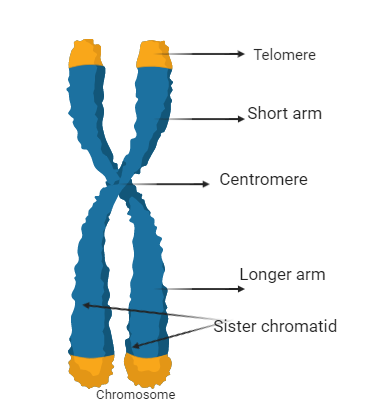









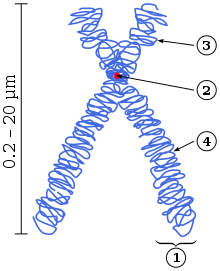

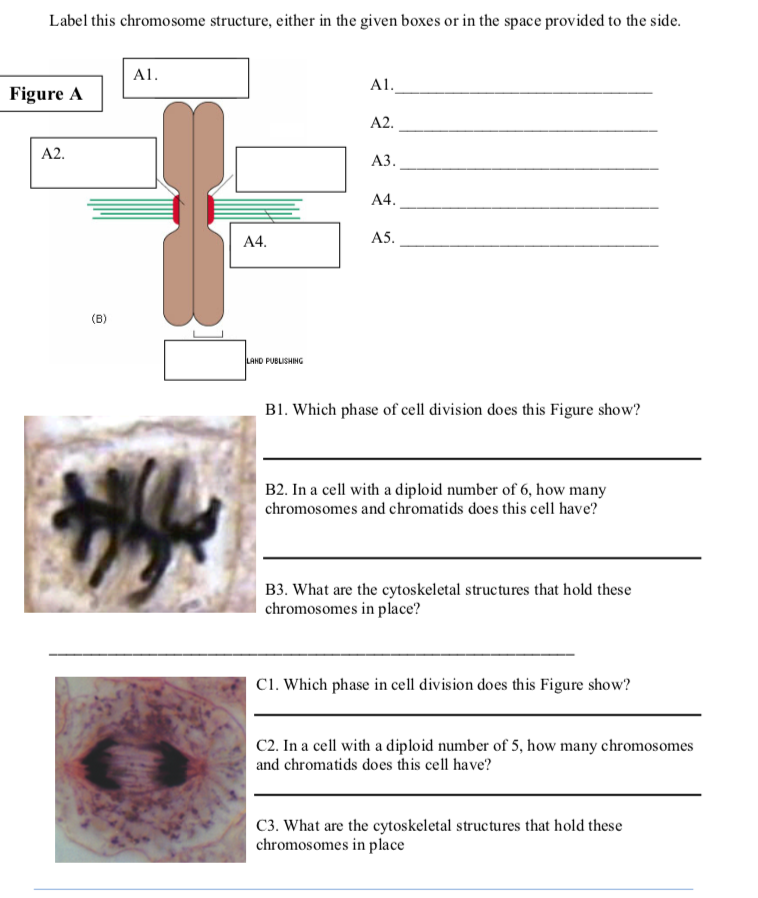







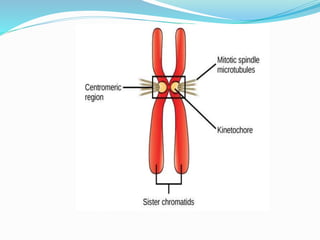

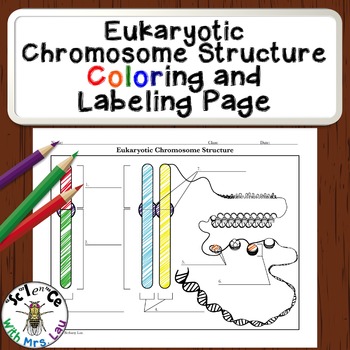

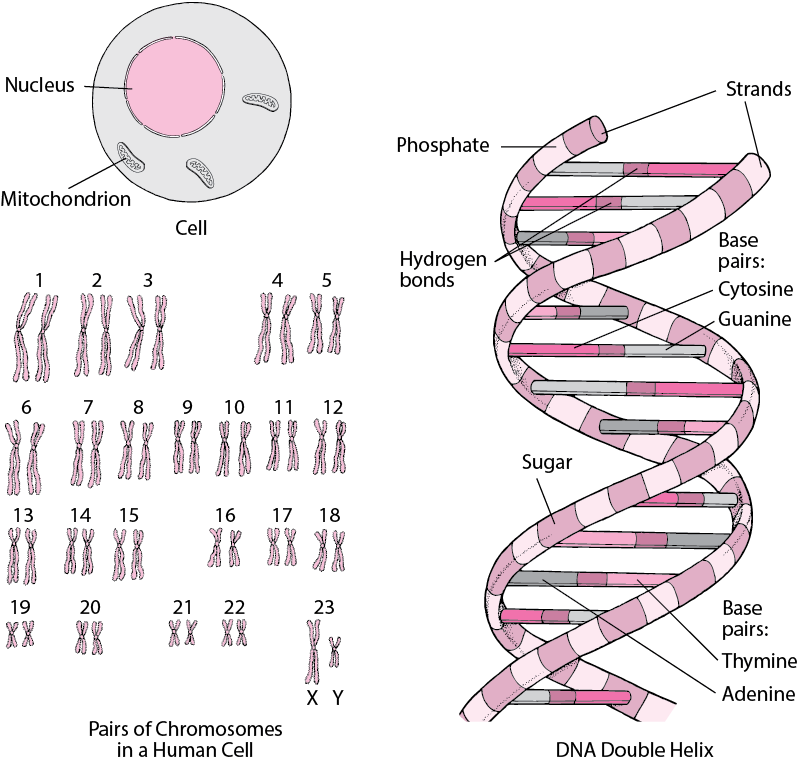
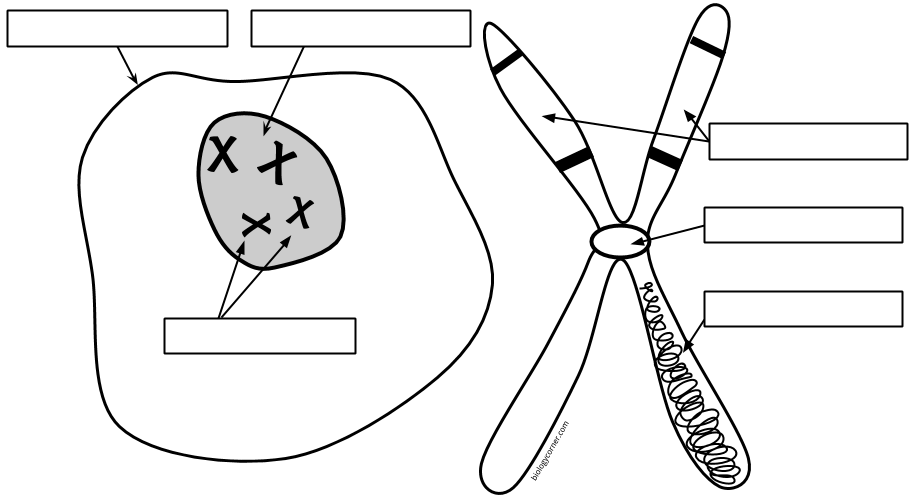
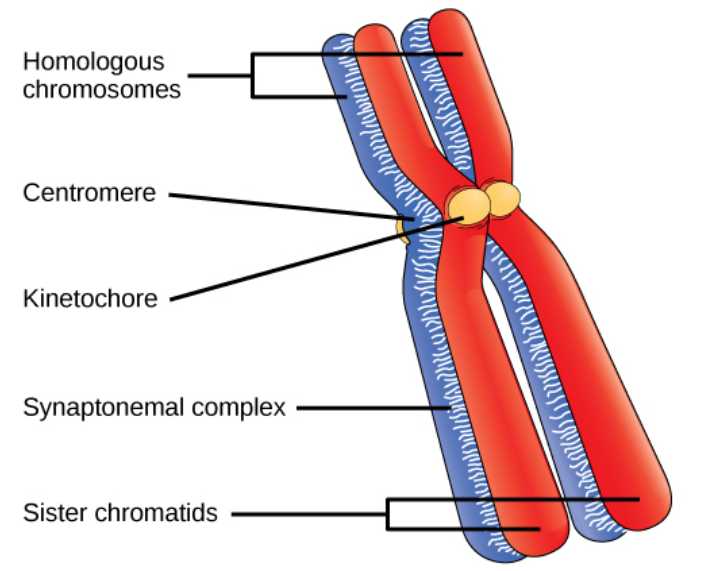







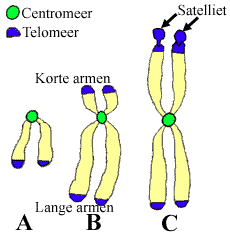


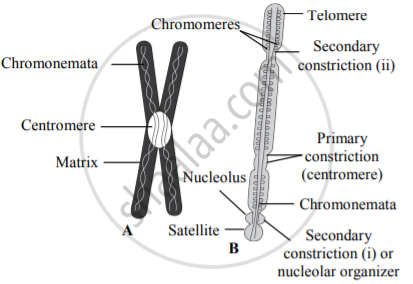
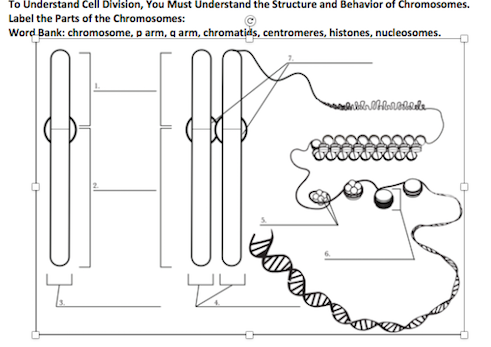

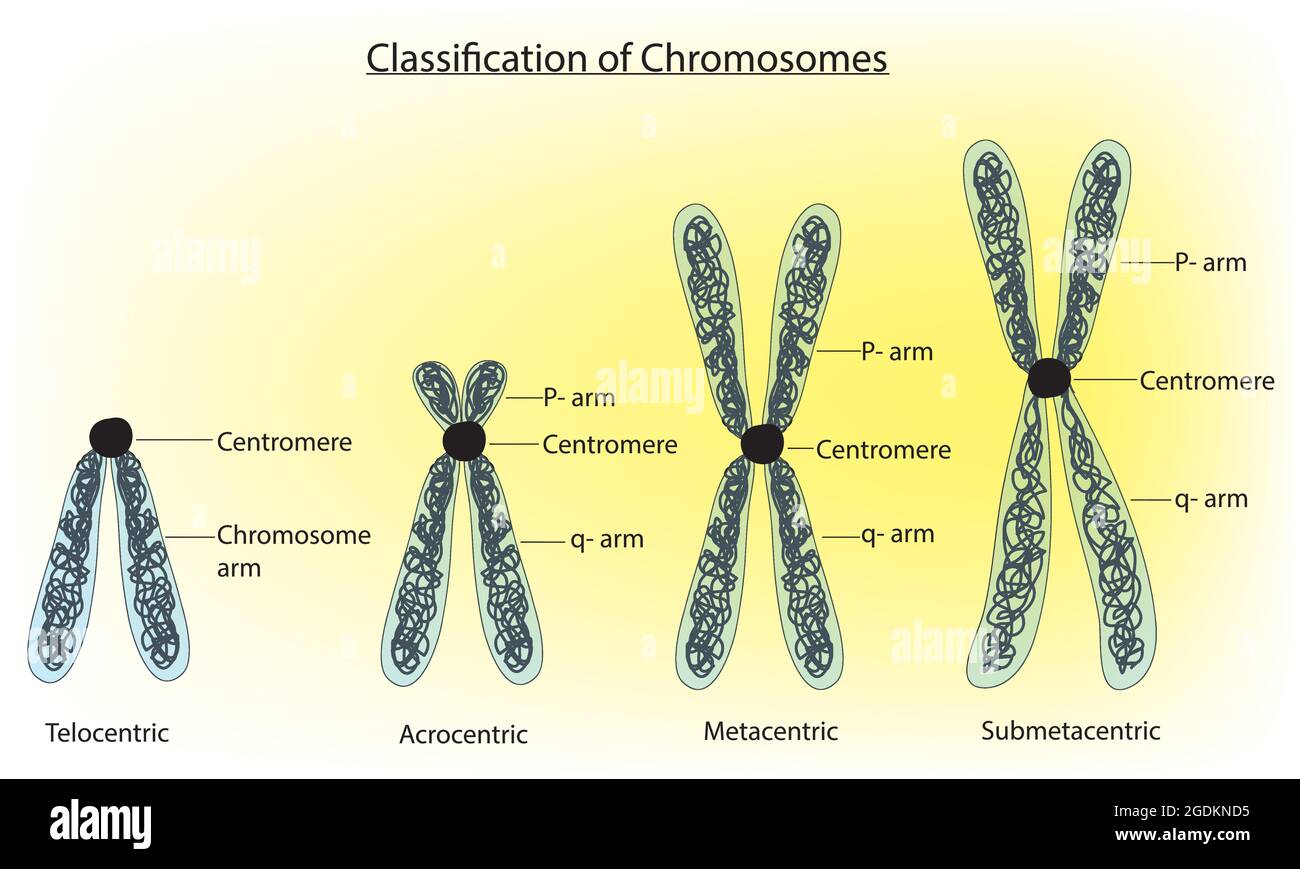
Post a Comment for "44 label parts of chromosome"